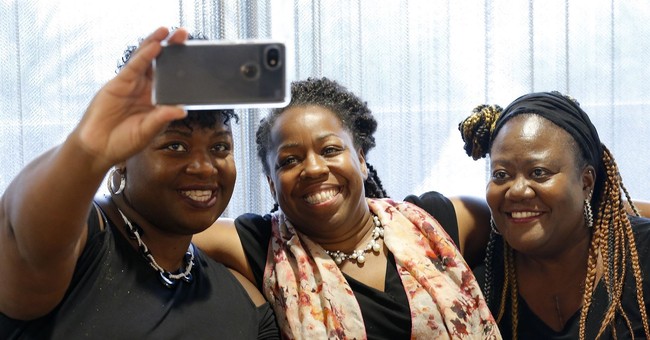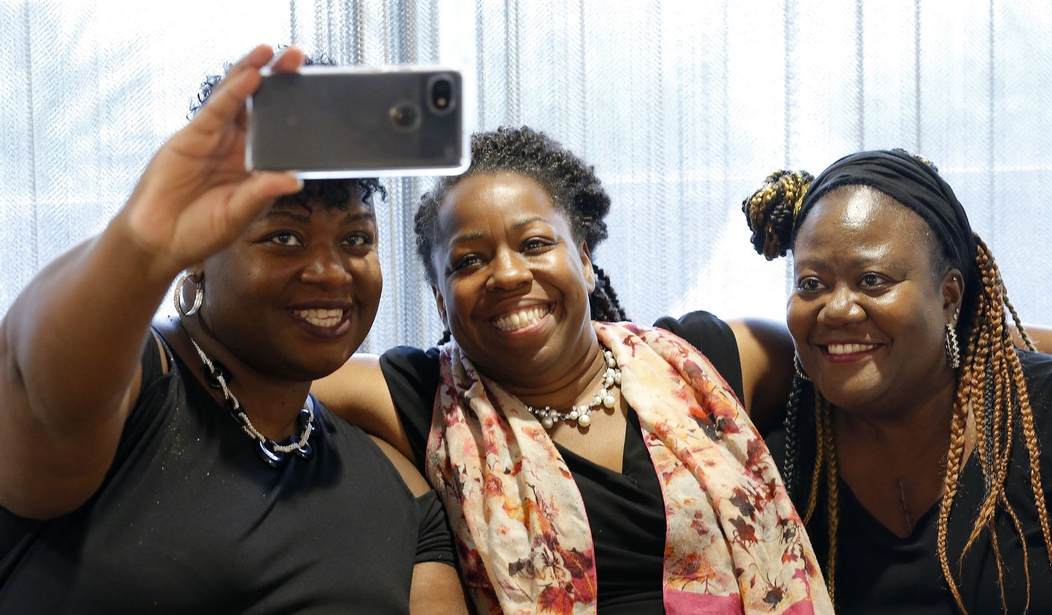
In the minds of millions of Americans, race relations in the aftermath of George Floyd’s death in May have deteriorated to levels experienced during the civil rights movement of the 1960s — if not worse.
As Black Lives Matter has continued to fan the flames — with a little help from their Antifa friends — protests continue, from the streets of Portland and other cities across the country, to professional sporting events, and nearly everywhere in between.
Trust between untold numbers of Blacks and Whites has plummeted; a lack of trust that is exacerbated by the Democrat Party and its lapdogs in the “mainstream” media on a daily basis. In a word, things are bad.
Except, are they? Are things really that bad?
As Dr. Walter E. Williams sees it, no. Not even close, argues the noted economist. In a recent op-ed titled Then and Yesterday, Williams argues to the contrary. “The socioeconomic progress achieved” by Black Americans — which began, Williams notes, in 1936 — has “exceeded anyone’s wild dreams.”
“In matters of race and other social phenomena, there is a tendency to believe that what is seen today has always been. For black people, the socioeconomic progress achieved during my lifetime, which started in 1936, exceeded anyone’s wildest dreams. In 1936, most black people lived in gross material poverty and racial discrimination. Such poverty and discrimination is all but nonexistent today.
“Government data, assembled by Robert Rector of the Heritage Foundation, shows that “the average American family […] identified as poor by the Census Bureau, lives in an air-conditioned, centrally heated house or apartment […] They have a car or truck. (Indeed, 43% of poor families own two or more cars.)”
“The household “has at least one widescreen TV connected to cable, satellite, or a streaming service, a computer or tablet with internet connection, and a smartphone. (Some 82% of poor families have one or more smartphones.” On top of this, blacks today have the same constitutional guarantees as everyone else, which is not to say that every vestige of racial discrimination has been eliminated.”
Opinion💭by Walter E. Williams
The poverty we have today is spiritual poverty—a result of public and private policy that rewards inferiority and irresponsibility.
Chief among the policies that reward inferiority and irresponsibility is the welfare state. https://t.co/QEfmZh0fbF
— Epoch Times Opinion (@EpochOpinion) September 10, 2020
Williams argues that the poverty of the past has been replaced by spiritual poverty, fueled by an absence of various human virtues.
The poverty we have today is spiritual poverty. Spiritual poverty is an absence of what traditionally has been known as various human virtues. Much of that spiritual poverty is a result of public and private policy that rewards inferiority and irresponsibility. Chief among the policies that reward inferiority and irresponsibility is the welfare state.
“When some people know they can have children out of wedlock, drop out of school and refuse employment and suffer little consequence and social sanction, one should not be surprised to see the growth of such behavior. Today’s out-of-wedlock births among blacks is over 70%, but in the 1930s, it was 11%. During the same period, out-of-wedlock births among whites was 3%; today, it is over 30%.
“It is fashionable and politically correct to blame today’s 21% black poverty on racial discrimination. That is nonsense. Why? The poverty rate among black husband-and-wife families has been in the single digits for more than two decades. Can anyone produce evidence that racists discriminate against black female-headed families but not black husband-and-wife families?”
Along with avoiding out-of-wedlock births, Williams identifies education as a key steppingstone out of spiritual poverty.
“For most people, education is one of the steppingstones out of poverty, and it has been a steppingstone for many black people. Today, decent education is just about impossible at many big-city public schools where violence, disorder, disrespect and assaults on teachers are routine.
“The kind of disrespectful and violent behavior observed in many predominantly black schools is entirely new. Some have suggested that such disorder is part of black culture, but that is an insulting lie.
“Black people can be thankful that double standards, and public and private policies rewarding inferiority and irresponsibility, were not broadly accepted during the 1920s, ’30s, ’40s and ’50s. There would not have been the kind of intellectual excellence and spiritual courage that created the world’s most successful civil rights movement.”
Today and Yesterday
By Walter E. Williamshttps://t.co/XAJcU9mPaW pic.twitter.com/k1Q8bKSqyF
— Lew Rockwell (@lewrockwell) September 10, 2020
Williams says “White guilt” is a relatively new phenomenon.
“Many whites are ashamed, saddened and guilt-ridden by our history of slavery, Jim Crow and gross racial discrimination. They see that justice and compensation for that ugly history is to hold their fellow black Americans accountable to the kind of standards and conduct they would never accept from whites. That behavior and conduct is relatively new.
“Meet with black people in their 70s or older, even liberal politicians such as Charles Rangel (age 90), and Reps. Eddie Bernice Johnson (85), Alcee Hastings (83) and Maxine Waters (82). Ask them whether their parents would have tolerated their assaulting and cursing of teachers or any other adult.
“I bet you the rent money their parents and other parents of that era would not have accepted the grossly disrespectful behavior seen today among many black youngsters who use foul language and racial epithets at one another. These older blacks will tell you that, had they behaved that way, they would have felt serious pain in their hind parts. If blacks of yesteryear would not accept such self-destructive behavior, why should today’s blacks accept it?”
“Black people have made tremendous gains over the years that came as a result of hard work, sacrifice and a no-nonsense approach to life,” Williams writes, closing with: “Recovering those virtues can provide solutions to many of today’s problems.”
Williams is an academic. I am not. Neither is black conservative radio show host Larry Elder. That said, Larry and I are perhaps more comfortable “speaking in the vernacular” than is Dr. Williams.
As Larry sees it, the primary objective of the BLM movement is not racial diversity. His example of black police officers makes the point.
“The protesters’ goal is not racial diversity within the police. Indeed, Black cops are denounced as Uncle Toms and sellouts. The goal is reparations, the redistribution of resources from one group — Whites — to another group, Blacks.”
“…the protesters’ goal is not racial diversity within the police…Mr. Elder said. Indeed, Black cops are denounced as Uncle Toms and sellouts. The goal is reparations, the redistribution of resources from one group—Whites—to another group, Blacks.”https://t.co/39f6uqnU1D
— Larry Elder (@larryelder) September 11, 2020
Larry Elder is right, of course. What Larry didn’t say is this:
The Democrat Party has exploited Black America for more than 60 years. Democrats have honed pandering to a fine art, as they have continued to promise this and pledge that, year after year — decade after decade. From the establishment of Lyndon B. Johnson’s War Poverty — now in excess of $33 trillion and counting — the statistics of Black urban America are bleak; as Dr. Williams duly noted.
The ugly little secret is this: the Democrat Party as we know it would cease to exist if urban Blacks were to heed the words of Walter Williams; avoid out-of-wedlock births, particularly among very young women; pursue an education as a steppingstone out of spiritual poverty; work to achieve a life better than the one they’ve known.
Democrats know this — and it scares them to death.
Were the above to happen, the hollow promises of the Democrat Party would ultimately fall on deaf ears. The scare tactics would cease to work. The pandering would be ignored. Blacks would finally refuse to be exploited — exploited solely by those with an eye on the ballot box.
Black Lives Matter means different things to different people. It is used by different groups for different purposes. To the Democrat Party, it is the ticket they keep punching, year after year, decade after decade — all for the purpose of remaining relevant — morally so, or not so much.














Join the conversation as a VIP Member